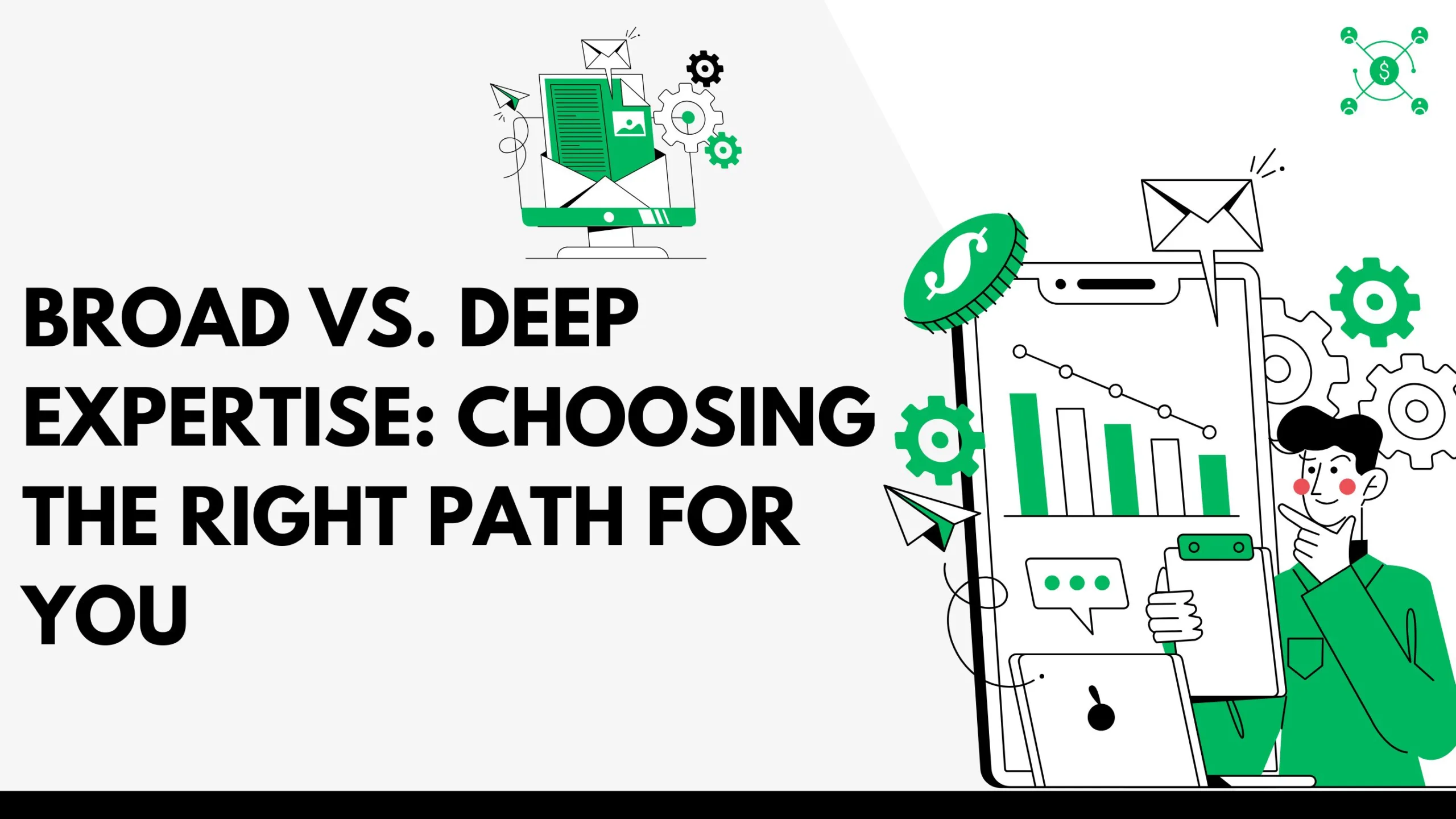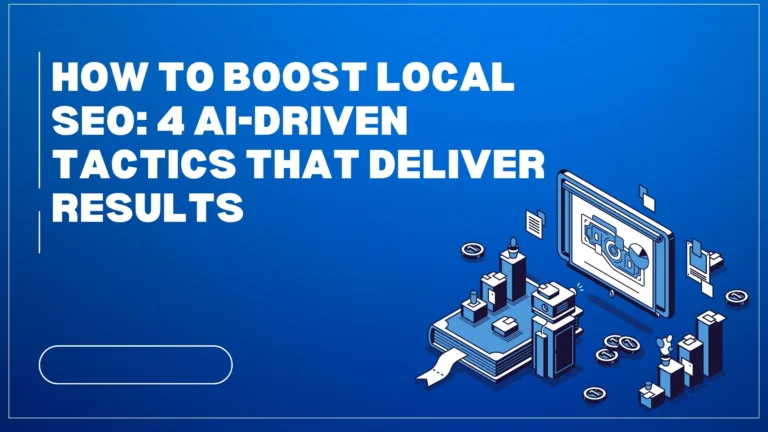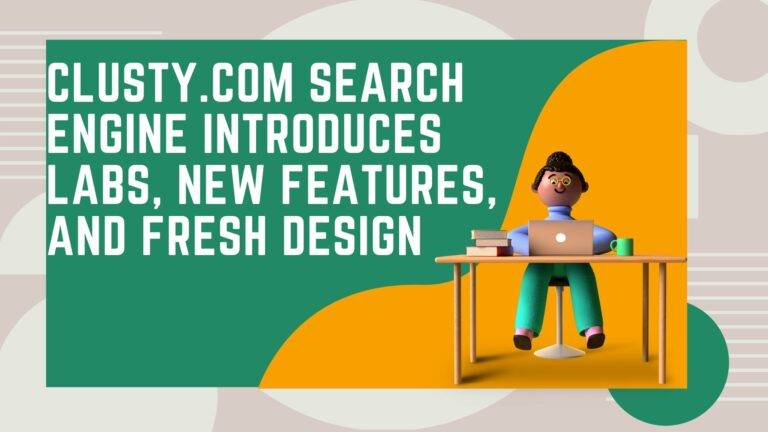Should you build broad knowledge or develop deep subject matter expertise? Here are five pointers to guide your decision.
You can choose to grow either wide-ranging or highly focused expertise—the decision is yours.
If you’re in the early or mid-point of your career, now is the ideal stage to decide whether you want to go broader or go deeper.
Here’s how to approach this choice and determine what works best for your journey in search marketing.
The T-Shaped Marketer
My perspective comes from the “T-shaped marketer” concept: someone with strong expertise in one area (the vertical line of the T) and broad understanding across related fields (the horizontal line).
This balance of specialization and adaptability makes you more valuable in marketing roles.
There isn’t a single “correct” choice. Often, circumstances shape the path. Keep in mind:
- You’ll likely work for around 40 years.
- Even a poor choice can be adjusted later.
- Many factors are outside your control.
- Sometimes luck works in your favor, sometimes it doesn’t.
- Companies can grow rapidly—or disappear altogether.
Why Choose Deep Subject Matter Expertise?
In-depth knowledge: Mastering a subject gives you an edge. Understanding the technical and strategic details can open doors to opportunities others may find hard to access. This involves staying on top of algorithm updates, platform shifts, and developing highly effective strategies.
Market demand: Generalists are more common, which often makes specialists more sought after. You might specialize in a subject, an industry, or a unique challenge (for example, technical SEO for Shopify-based sporting goods). When those problems arise, you’re the go-to expert. Demand will also vary depending on the company or market—for example, an agency landing a paid search client could create more openings in that area.
Thought leadership: Specialization gives you a distinct perspective and the ability to anticipate needs and trends. Experts often emerge as industry authorities, contributing to publications, sharing insights, or speaking at events.
The Case for Broad Expertise
Versatility: Having a wide skillset allows you to engage in many different conversations and make connections across disciplines. For example, keyword research is valuable in both SEO and PPC, while campaign structures are similar across paid social and search. These overlaps make broad expertise flexible as client and business needs shift.
Big-picture perspective: Focusing too narrowly can limit your view. A broader understanding helps you maintain perspective and address complex challenges such as allocating budgets, shaping creative strategies, or improving the customer journey.
Collaboration and communication: Generalists are often effective at working across teams and departments. Because they understand the basics of multiple areas, they can coordinate projects smoothly, bridge knowledge gaps, and resolve cross-functional issues efficiently.
5 Tips to Help You Decide
1. Evaluate your strengths and passions
Reflect on what you enjoy and where you perform best. Do you prefer diving into technical details, or do you thrive when juggling variety and working across teams? Your interests play a key role in long-term satisfaction.
2. Study the market
Research demand and compensation trends for both specialists and generalists in your industry and location. Needs shift as the industry evolves. Reviewing job roles (e.g., VP of SEO vs. VP of Marketing) can also reveal how organizations value different skill paths.
3. Keep the long term in mind
Some worry that specialization may restrict growth, while generalists may seem more adaptable. In reality, both routes can lead to success, provided you continue sharpening your skills. Senior specialists may find it tougher to command pay, but true expertise is highly valued. Focus on what you can control and refine it—opportunities and recognition will follow with persistence.
4. Learn from others
Connect with professionals who have chosen different paths. Ask them about their experiences, challenges, and rewards. Their perspectives can give you clarity when making your choice.
5. Test and explore
If you’re uncertain, take on different projects or roles to experience both specialization and generalization. First-hand exposure often reveals where you truly fit best.
What’s the Right Path for You?
There’s no universal answer to whether you should go broad or deep. The right choice depends on your strengths, interests, and long-term ambitions. By carefully weighing these factors, you’ll be able to choose a path that supports a fulfilling and successful marketing career.
Frequently Asked Questions (FAQs)
Q1. What is the difference between broad and deep expertise?
Broad expertise means having knowledge across multiple areas, while deep expertise refers to having in-depth mastery in a specific subject or skill.
Q2. Which is better for career growth—broad or deep expertise?
Neither is universally better. Broad skills make you versatile and adaptable, while deep expertise makes you a go-to authority in your niche. The right choice depends on your strengths, career stage, and long-term goals.
Q3. Can I combine broad and deep expertise?
Yes. Many professionals follow the “T-shaped” model—developing deep expertise in one area while maintaining broad knowledge across related fields. This balance offers both specialization and adaptability.
Q4. When should I focus on building deep expertise?
Deep expertise is often ideal if you’re passionate about one subject, enjoy technical problem-solving, or want to establish yourself as an industry thought leader.
Q5. When is it better to develop broad expertise?
Broad expertise is beneficial if you enjoy variety, want to work across teams, or aim for leadership roles that require big-picture thinking and cross-functional collaboration.
Q6. Can I switch from being a generalist to a specialist (or vice versa)?
Absolutely. Career paths are flexible. Many professionals start broad and then specialize, or begin as specialists and later expand into broader roles.
Q7. How does market demand influence my choice?
Industry needs often shift. For example, generalists may be valuable in startups where flexibility is key, while specialists are in higher demand in larger companies or agencies requiring niche skills.
Q8. What if I make the wrong choice between broad and deep expertise?
There’s no permanent mistake—you can always pivot. Career spans are long, and continuous learning allows you to adjust your expertise over time.




